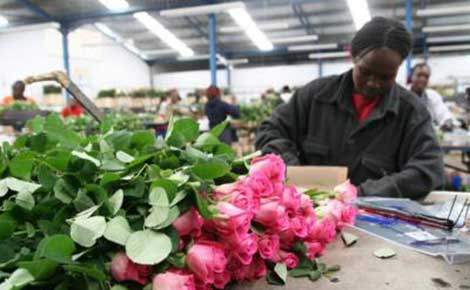 |
| Kenya Flower Council warns that local horticulture exporters will face more than Sh1 billion in losses each month. |
Nairobi; Kenya: The Government has moved to arrest panic among exporters to the European Union as they stare at massive losses over the delayed Economic Partnership Agreement (EPAs).
Foreign Affairs Cabinet Secretary Amina Mohamed, told ‘Weekend Business’ that the government will cushion the exporters against losses. “The Government and the EU have agreed to help cushion Kenyan farmers and other exporters against any losses. There should be no panic since we are working hard to strike a suitable deal for all the stakeholders,” she said on the sidelines of Africa Global Business Forum 2014, in Dubai. However, she did not specifically say how the government plans to do this.